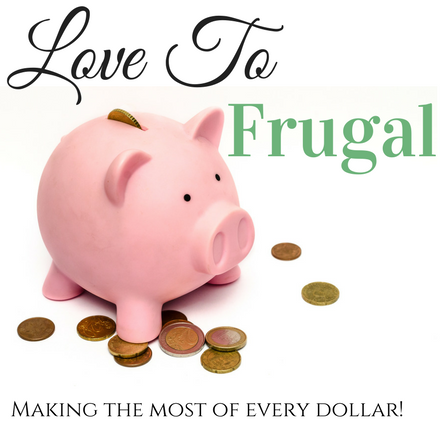Frugal Living Tips For Early Retirement
The traditional notion of retirement often conjures images of leisurely days in our golden years. We’re finally free to pursue our passions and hobbies. But for many, the idea of retiring early, long before the age of 65, is a dream that seems out of reach. However, by embracing frugal living and making conscious choices about how we spend and save our money, early retirement CAN become an attainable goal!
Our early retirement began in January of 2018. My husband worked for the Houston Fire Department for 32 years. If you’re at all familiar with HFD or the like, you know that firemen’s pay does not correlate with the risk of the job. But, it was a job he loved, so for many years, he worked over time when he could get it and almost always had a side hustle.
One really good thing that the fire department had was a good retirement option. We knew that living at or below our means, embracing frugality and a lot of patience would pay off in the end. And you know what? It did. We were able to retire 3 years before he turned 60 and yes…retirement is nice.
So, in this blog post, I’ll explore how frugal living can be the key to unlocking the door to early retirement and the steps you can take to make this dream a reality.
*This post may contain affiliate links, which means that if you buy a suggested product, I will earn a small commission, at no extra cost to you. For more information, see my disclosure page.
Frugal living tips for achieving early retirement
Setting the Stage: What is Frugality?
Frugality, at its core, is about being intentional with our spending. It’s about making conscious decisions, and prioritizing long-term goals over short-term desires. It involves finding satisfaction in simpler pleasures and avoiding unnecessary expenses.
Early retirement, on the other hand, is the freedom to choose how we spend our time without being tied to a traditional work schedule. It’s the pursuit of financial independence and the ability to retire well before the typical retirement age.
For me and many other people, frugality is more than just penny-pinching; it’s a mindset and a lifestyle. It’s about making deliberate choices in spending, prioritizing needs over wants and finding satisfaction in the simple pleasures of life. Frugal individuals are experts at making their money work harder for them. Instead of squandering every paycheck, they save, invest, and plan for the future
Frugality can manifest in various ways. For example, it might mean cooking meals at home instead of dining out frequently, shopping for discounts and deals, and avoiding unnecessary purchases. It’s about being resourceful and mindful of where your money goes.
One of my favorite quotes from my favorite financial guru Dave Ramsey says: “If you’ll live like no one else, later you can live and give like no one else.” This is a perfect example of what this whole post is about and it’s one of the most fundamental frugal living tips I can give you to reach early retirement.
The Power of Saving: Building Your Retirement Nest Egg
Frugality and early retirement go hand in hand because frugal living enables significant savings. By cutting back on non-essential expenses, individuals can allocate a larger portion of their income towards saving and investing. This creates a snowball effect, as those savings generate interest, dividends, and capital gains that further accelerate wealth accumulation.
By spending less on unnecessary items, you can allocate a significant portion of your income to savings. This savings isn’t just left to sit in a bank account. It’s strategically invested in assets that grow over time, such as mutual funds, 401k’s, stocks, bonds, real estate and in our case…a very well managed pension fund. These investments can provide a steady stream of income that can support your early retirement.
For one example, consider someone who saves 20% of their monthly income and invests it wisely. Over several years, this disciplined approach can result in a substantial nest egg that could easily support a comfortable lifestyle in your early retirement.
One of the most important keys to retiring early is to start as early as possible. When we’re in our 20’s and 30’s, we tend to think that we have plenty of time to save, but the reality is that every year you put it off, you’re also putting retirement off.
Saving and investing are cornerstones of financial success, and their importance cannot be overstated. The sooner one begins to save and invest, the greater the potential for long-term financial growth. The magic of compound interest means that even small, regular contributions can lead to substantial wealth accumulation over the years.
In essence, saving and investing early are proactive steps toward building a secure financial future, providing the means to achieve personal goals, whether it be homeownership, education, or the path to early retirement.
Debt Reduction: Clearing the Path to Freedom
A key aspect of frugality is minimizing or eliminating debt. Debt not only erodes wealth through interest payments but also creates financial obligations that can delay retirement plans.
By living below your means, you can pay off debt more quickly and avoid falling into the trap of lifestyle inflation, aka ‘lifestyle creep’. This is where increased income leads to increased spending. Instead,you can channel those extra funds towards investments that will hasten your journey towards early retirement.
Start by creating a debt repayment plan the Dave Ramsey way, that prioritizes debts from smaller balance to highest. This is called the Debt Snowball method. As you pay off debts, you free up more of your income to redirect towards savings and investments.
For instance, the debt snowball, is where you list your debts, (Mortgage NOT included) smallest amount to largest, no matter what the interest rate is. You pay minimum on the debts, except the first one. Throw whatever you can at it and pay it off as soon as possible. Then, when it’s gone, you take what you were paying on the first one and roll it into the second one, all while still paying minimum on the following ones. This way, when you see one gone, you’ll be motivated to keep going.
Once those debts are cleared, divert those funds to your retirement savings.
Budgeting: A Roadmap to Success
Budgeting is one of my top frugal living tips for early retirement that frugal individuals are meticulous about. Creating a detailed budget that tracks your income and expenses will allow you to see where your money is going. This is key in helping you identify areas where you can cut back.
Budgeting allows you to allocate funds towards savings, investments, and debt repayment, ensuring that your financial resources are optimized. Once you know this, you can make necessary adjustments.
When creating a budget, categorize your expenses into needs and wants. Needs include essential items like housing, food, utilities, and transportation. Wants are discretionary expenses, such as entertainment, dining out, and non-essential purchases. By identifying areas where you can cut back or reduce spending, you can allocate more funds towards your retirement savings.
For example, if you identify that dining out frequently is a significant portion of your discretionary spending, you can reduce this expense by cooking at home more often. You don’t want to reach retirement only to find that you ate your comfortable retiree lifestyle and have nothing to show for it.
Embracing Minimalism: Less Stuff, More Freedom
Many frugal people also embrace minimalism as one of their frugal living tips for early retirement. They recognize that happiness isn’t found in the accumulation of possessions but in experiences and relationships. By decluttering and simplifying, you not only save money but also reduce the financial pressure to keep up with a materialistic lifestyle.
Minimalism encourages you to evaluate your possessions and ask whether they truly add value to your life. It’s about letting go of excess and focusing on what genuinely matters. By reducing your materialistic desires, you free up resources to put towards early retirement, ultimately helping you reach your goal sooner.
For instance, consider selling or donating items you no longer need or use. You can then redirect these funds from sales or the tax deductions from donations towards your early retirement savings. Moreover, adopting a minimalist mindset can lead to reduced consumption. This will cut down on the ongoing expenses associated with maintaining and replacing possessions.
Minimalism isn’t just about physical possessions; it extends to other areas of life as well. For example, it might mean cutting down on digital subscriptions. It could also mean reducing your wardrobe to essential items, or simplifying your daily routine.
By embracing minimalism, you not only reduce your financial burden but also gain more time and mental space to focus on your early retirement goals.
Alternative Income Streams: Diversifying Your Portfolio
Frugality doesn’t necessarily mean living a life of deprivation; it means being resourceful and seeking alternative income sources.
Early retirees often leverage their skills, hobbies, or passions to generate income through freelance work, part-time jobs, or entrepreneurship. By diversifying income streams, you can increase your savings rate, accelerate your journey towards early retirement, and find fulfillment in meaningful work.
Explore opportunities for freelance work, part-time jobs, or starting a small business. The additional income generated from these endeavors can supplement your savings and investments, accelerating your journey towards early retirement.
For example, if you have a passion for photography, you might consider offering photography services for events or stock photo sales online. For myself, I started a blog in 2017, a year before my husband retired. Now, it generates enough money to supplement our income and I don’t have to leave home to do it.
Determining your monthly financial needs
Lastly, when planning for early retirement, it’s crucial to calculate how much you’ll need to cover your monthly expenses. Start by listing all your essential costs, including housing, utilities, groceries, healthcare, and transportation.
I began doing this about a year before he retired. I already knew what our income would be so this little exercise helped me to see what we needed to hurry up and pay off and where we needed to cut back. It was our retirement budget, so to speak.
Now, once you have a comprehensive list, estimate the total amount needed to sustain your desired lifestyle. Subtract any passive income streams, like pensions, rental income or dividends from your estimated monthly expenses.
This calculation will give you a clearer picture of the savings target required for early retirement and guide your frugal living strategies to meet those financial goals.
Conclusion: Your Early Retirement Awaits
Remember, the journey towards early retirement starts with setting clear financial objectives and following through with actionable steps. Utilize the power of saving and investing wisely. Reduce or eliminate debts, and craft a meticulous budget aligned with your aspirations.
Moreover, diversifying income streams and calculating your monthly retirement needs are critical components of the early retirement equation. By creating multiple revenue sources and understanding your financial requirements, you can better strategize and adjust your savings to match the lifestyle you envision during retirement.
Start implementing these frugal living tips today, and watch as each small step brings you closer to the life of your dreams—a life where retirement isn’t just an age; it’s a choice.
Be sure to subscribe to Love To Frugal so you never miss a post and make sure to follow me on Pinterest, Instagram & Facebook for even more money saving, frugal living tips!



